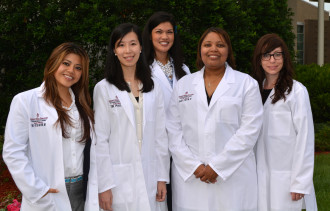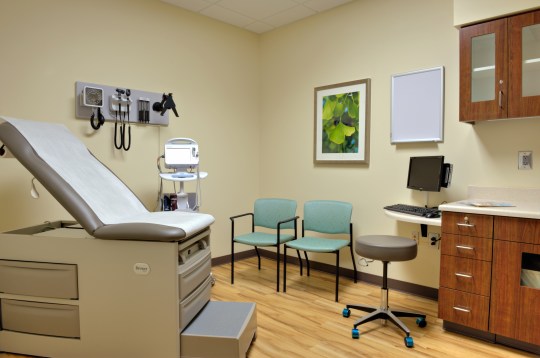The state’s pipeline for new physicians is getting wider.
Gwinnett Medical Center has joined a phalanx of hospitals developing residency programs in primary care – an effort that could help ease Georgia’s physician shortage.
The Lawrenceville-based health system launched its new family medicine residency program last week, the first physician training offered there in the organization’s history.
One of the five medical graduates starting the three-year family medicine residency is Barbara “Joy” Jones of Warner Robins. She graduated from the Georgia campus of Philadelphia College of Osteopathic Medicine, in the Gwinnett County town of Suwanee.
Jones picked the Gwinnett Medical residency program, in part, because she “was already familiar with the area.’’
The newness of the program also attracted Jones – “the chance to be a trailblazer.”
Other Georgia hospitals starting or planning new residency programs include hospitals in Athens, Rome, Carrollton and Marietta, as well as a South Georgia consortium, according to Cherri Tucker, executive director of the Georgia Board for Physician Workforce.
The state’s deficit in primary care doctors is propelling the changes, Tucker says.
Nationally, the demand for physicians has intensified with a growing population and an increase in the numbers of older people. According to Association of American Medical Colleges’ estimates, the nation faces a shortage of more than 91,000 physicians by the year 2020.
Georgia ranked 39th among states in the percentage of physicians per population in 2010. But in primary care, the numbers look worse.
In 2010, according to a Board for Physician Workforce report, six counties had no family medicine physician; 31 counties had no internal medicine physician; 63 counties had no pediatrician; and 79 counties had no OB/GYN; and 66 counties had no general surgeon. Many of the counties lacking primary care doctors are in rural areas.
“Georgia has seen the need,’’ Tucker says. “All our medical schools have increased enrollment.”
Where young doctors do their residency training is a good indicator of where they will eventually practice. Overall, about half of Georgia’s medical residents end up practicing in the state, Tucker says.
Many young doctors graduating from Georgia medical schools wind up doing their training in other states. In 2012, just 22.3 percent of Georgia’s first-year residency slots were filled by Georgia medical school graduates.
State still has a way to go
Georgia ranks 40th among the 50 states in total physician residents per 100,000 people. The state’s rate of 21.8 residents per 100,000 is well below the national average of 36.6 residents per 100,000, according to the Board for Physician Workforce.
Caps on Medicare-funded residencies have hampered existing graduate medical programs.
To help close these gaps, additional state funds have been allocated for new residency slots. The newly created programs have the promise of federal dollars down the road.
Gwinnett County is a populous suburban area of Atlanta. It’s generally affluent and presumably an attractive place for doctors to locate.
But Dr. Kevin Johnson, director of Gwinnett’s family medicine residency program, said the county has a primary care shortage so urgent that many physician specialists are delivering primary care services. (Gwinnett Medical will also start an internal medicine residency program.)
The physicians in the Gwinnett family medicine residency program will include both MDs and DOs, such as Jones.
Johnson says 70 percent of family medicine residents stay to practice within 75 miles of where they train.
The program received a boost when Gwinnett Medical Center opened a family medicine center across the street from its Lawrenceville hospital. It’s named Strickland Family Medicine Center, after Clyde and Sandra Strickland, who gave a $1 million gift to the Gwinnett Medical Center Foundation.
The facility is already open for patients. On July 7, the residents will start seeing them.
Jones says she’s excited about the range of patients she’ll see, from newborns to pregnant women to seniors.
She says she wants to practice close to the area where she’s training.
That type of result is what the Gwinnett program is all about. “We need to improve primary care for the region,’’ Johnson says.


